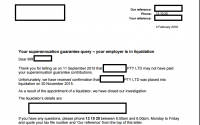Microsoft Vs. Google, Why Buy Microsoft Products When There Are Alternatives?
The following is an article I wrote for one of my assessments in 2008 which I thought I might share. The question is “why should you pay for software when you can get it for free” and the topic is software monopolies.
 Home computers, most people nowadays own at least one, maybe even two. What will their operating system be? Most likely, it will be Microsoft. Their Internet Browser, again, it will most likely be Microsoft Internet Explorer. Microsoft has been the dominant player in regards to competition in the software and online industry. This would hopefully change with the growing demand of the internet and on-line applications.
Home computers, most people nowadays own at least one, maybe even two. What will their operating system be? Most likely, it will be Microsoft. Their Internet Browser, again, it will most likely be Microsoft Internet Explorer. Microsoft has been the dominant player in regards to competition in the software and online industry. This would hopefully change with the growing demand of the internet and on-line applications.
Google, the world’s number one search engine in Australia, (Google, 2007) has begun their rollout of web-based applications, which is an immense threat to Microsoft and their newly developed Windows Live portal. Google Apps (www.google.com/a) which contains many new initiatives including Google Site, Google Docs, Start Page, Google Calendar and Google Talk, greatly outnumbers what Microsoft has to offer in their Office suites and on their Windows Live Portal consistent of Windows Live Mail, Messenger, Photo Gallery and Writer. Not only this, Google also offers Google Earth, Google Maps, Page Creator and many Webmaster Tools that provided detailed statistics for webmasters. Google has acquired many internet-based companies to help grow their enterprise that comprises of Youtube, Blogger, Feed Burner, JotSpot, Deja.com and Keyhole Corp, which established Google Earth (MacManus, 2007). This allows Google to gain more of the market share from Microsoft. Microsoft has retaliated with the recent purchase of Yahoo, another leading search engine in the online world who are partners with the Channel Seven Corporation, which can provide affordable and effective advertising to a large majority of Australians.
With competition between Google Apps and Microsoft Office suites, Microsoft is in vast threat as corporations can greatly benefit from online sharing which eliminates the use of expensive Microsoft Office suites that are used offline. Online sharing and collaboration has recently become a key aspect that can benefit organisations to work more efficiently and effectively at home, at work, or on the go.
 Google is also diminishing Microsoft products, as “Google seems to be sidling up to Firefox, a relationship that could bring back some bad memories for Microsoft” says Mike Yamamoto from Cnet News. Google has been promoting Mozilla Firefox, a community developed web browser through Google’s Adsense program that allows webmasters to be paid when Firefox is installed on a users PC after clicking on an ad. Google’s Adsense program rakes in US$4 Billion per quarter in revenue. (Kidd, 2008) This is entering danger zone for Microsoft’s Internet Explorer as in January 2002, Microsoft had 86.8% of the market share, and now it is down to 54.7% in January 2008. Mozilla Firefox on the other hand has increased by almost 20% within the last three years. Since the establishment, Microsoft has dominated the software industry, which has made their programs standard in homes and educational institutes around the world. Microsoft has the advantage as they can easily incorporate new products through their automatic updates implemented in their operating systems. Microsoft’s Internet Explorer is pre-installed on all Windows Operating Systems which Microsoft has 87.2% of the market share of the past five Windows operating Systems. Linux has 3.6% and Macintosh has 4.4% of the market share. (W3Schools, 2008)
Google is also diminishing Microsoft products, as “Google seems to be sidling up to Firefox, a relationship that could bring back some bad memories for Microsoft” says Mike Yamamoto from Cnet News. Google has been promoting Mozilla Firefox, a community developed web browser through Google’s Adsense program that allows webmasters to be paid when Firefox is installed on a users PC after clicking on an ad. Google’s Adsense program rakes in US$4 Billion per quarter in revenue. (Kidd, 2008) This is entering danger zone for Microsoft’s Internet Explorer as in January 2002, Microsoft had 86.8% of the market share, and now it is down to 54.7% in January 2008. Mozilla Firefox on the other hand has increased by almost 20% within the last three years. Since the establishment, Microsoft has dominated the software industry, which has made their programs standard in homes and educational institutes around the world. Microsoft has the advantage as they can easily incorporate new products through their automatic updates implemented in their operating systems. Microsoft’s Internet Explorer is pre-installed on all Windows Operating Systems which Microsoft has 87.2% of the market share of the past five Windows operating Systems. Linux has 3.6% and Macintosh has 4.4% of the market share. (W3Schools, 2008)
With free applications becoming more and more popular, home PC users, tend not to pay for additional software, but rather download it. Applications such as Mozilla Firefox and OpenOffice.org are becoming more popular and are great free alternatives to Microsoft Office software. These free programs are downloadable from the internet and are compatible with Microsoft products for use when these programs are not available at work or school computers. With free application such as Google Apps and Open Office.org, it is hard to believe that Microsoft still has the majority of the market.
However, According to Cybersource, “It is impossible or extremely difficult for consumers to purchase a desktop PC or laptop from a tier-1 or tier-2 computer manufacturer without also having to purchase an OEM copy of Microsoft” (Cybersource, 2005). This is with the exception of Apple Mac, which you are still required to buy.
For the end user the competition between free applications such as Google Apps, Mozilla programs and OpenOffice.org provides great benefits as the software is just as good as or better than Microsoft products. Microsoft’s price will therefore drop as they are missing the sales and profits. Microsoft has also brought forward their release of Windows 7 to boost sales from their criticised Windows Vista operating system.
The war between Google and Microsoft in the on-line industry will always continue. Microsoft has Hotmail, Windows Live Messenger and Spaces which appeals more to the younger generation, whereas Google tends to market towards education and business enterprise. These two rival companies compete using their software, online applications and features. Microsoft Hotmail, which contains ads in every email, only allows attachments of 10 megabytes, and does not work with Microsoft Office applications such as Microsoft Outlook; and Gmail, which does not display ads, has a 25 megabyte attachment limit and works with Microsoft Office Software and other free software such as Mozilla Thunderbird.
Google and open sourced programs provides everything plus more that Microsoft Office provides. So why continue to pay $500 for Microsoft products where you can have products just as good and better for free? If you have to choose between these two companies, choose Google and support open sourced software. Do not continue to pay Bill Gates’ wage.
Useful Links:
Google Apps: http://www.google.com/a
Mozilla Firefox: http://www.mozilla.com/firefox/
Microsoft: http://www.microsoft.com/
Google Adsense: https://www.google.com/adsense/
Cnet News: http://www.news.com/
Open Office: http://www.openoffice.org/
Bibliography
- Richard MacManus. (2006, November 22). Retrieved March 10, 2008, from Read Write Web: http://www.readwriteweb.com/archives/microsoft_vs_google_heats_up.php
- Cybersource. (2005, July 26). The Cost of Software Monopoly:. Retrieved March 09, 2008, from Cybersource: http://www.cybersource.com.au/press/the_cost_of_software_monopoly.pdf
- Feed Burner. (2007, June 1). Burning Questions. Retrieved March 10, 2008, from Feed Burner: http://blogs.feedburner.com/feedburner/archives/2007/06/feedburner_google.php
- Google. (2007). Google Corporate Information: Google Milestones. Retrieved March 10, 2008, from Google Australia: http://www.google.com.au/corporate/history.html
- Hakon Wium Lie, N. (2006, June 19). Microsoft’s forgotten monopoly. Retrieved March 10, 2008, from Zdnet: http://news.zdnet.com/2100-3513_22-6085484.html
- Kidd, D. (2008, March). Shifting Places. PC Authority , pp. 5,7.
- MacManus, R. (2007, Septemeber 10). Microsoft Issues 10 Reasons Why Enterprises Shouldn’t Use Google Apps. Retrieved March 10, 2008, from Read Write Web: http://www.readwriteweb.com/archives/microsoft_10_reasons_against_google_apps.php
- Sokullu, E. (2006, Novemeber 21). GoogleOS: What To Expect. Retrieved March 10, 2008, from Read Write Web: http://www.readwriteweb.com/archives/googleos_what_to_expect.php
- W3Schools. (2008, February). Browser Statistics. Retrieved March 10, 2008, from W3Schools: http://www.w3schools.com/browsers/browsers_stats.asp
- W3Schools. (2008, January). OS Platform Statistics. Retrieved March 09, 2008, from W3Schools: http://www.w3schools.com/browsers/browsers_os.asp
- Yamamoto, M. (2005, November 10). Microsoft vs. Google and Firefox. Retrieved March 10, 2008, from Cnet: http://www.news.com/8301-10784_3-5944623-7.html



